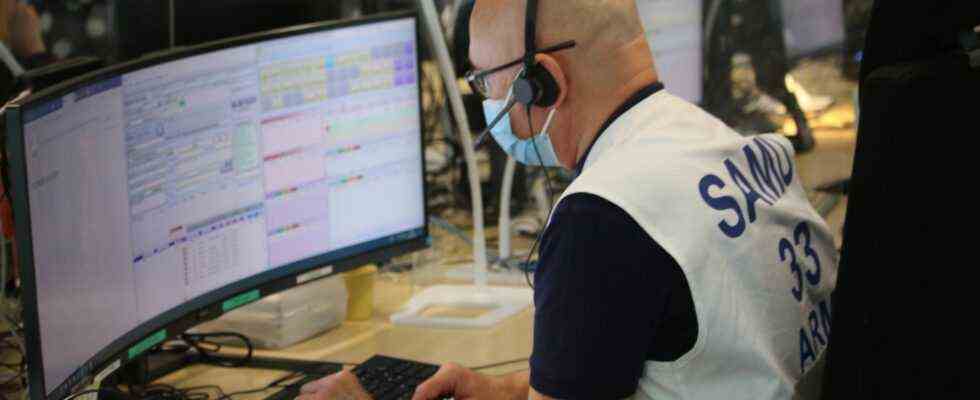Samu illustration at CHU Bordeaux – Mickaël Bosredon / 20 Minutes
- An AI-based tool was tested in Gironde during the first confinement to analyze calls made to Samu.
- The study conducted jointly by the Bordeaux University Hospital and Inserm makes it possible to imagine the establishment of a surveillance system for public health problems (car accidents, alcohol abuse, etc.)
- AI could also make it possible to lighten the work of Samu regulators by relieving them of the most forbidding tasks.
With an average of around 1,500 calls per day in Gironde, in 2020, the regulatory assistants of the Samu, work in an emergency and write reports in real time. “The number of calls for regulation is enormous as is the number of admissions, and clearly a human triage to make public health from all this is unimaginable, estimates the doctor Cédric Gil-Jardiné of the emergency department of the center. Bordeaux University Hospital. Hence the idea of an artificial intelligence (AI) capable of “reading” these reports and extracting the useful content for syndromic surveillance. “
In this sense, a study was carried out jointly by the Bordeaux University Hospital and Inserm based on calls made to Samu in Gironde. Started in January, she was obviously interested, among other things, in the Covid-19 epidemic. Adequately trained, the AI is able to “monitor stress, chest pain, respiratory symptoms but also discomfort, poisoning due to alcohol abuse and traffic accidents which are major public health problems”, explains Cédric. Gil-Jardiné.
Better understand the Covid-19 epidemic
In the case of the coronavirus, everything is then to be learned at the time of the study which starts a little before the first confinement. “Cough and fever come first and then give way to other symptoms such as respiratory problems, it’s a bit like the natural history of the disease”, points out Emmanuel Lagarde, researcher at Inserm. On a more practical level, the study also provides useful information in terms of organization of hospital resources. “We have a peak of activity in regulation and 20 days later we observe it in the emergency room, in terms of reflection to anticipate the means for emergency structures and hospital downstream, this is important information”, underlines Cédric Gil-Jardiné.
“These are only preliminary results. Today, for example, we are working on building indicators that would make it possible to better distinguish the signs of an epidemic, so as for example to differentiate as early as possible an outbreak of Covid-19 from that of seasonal influenza, ”write Dr. Catherine. Pradeau service Samu-Smur and doctor Cédric Gil-Jardiné, in an article published in The Conversation.
Help and not replace humans
“This AI is not intended to replace humans, it intervenes in a second step to be able to extract the information that interests us for surveillance”, specifies Doctor Cédric Gil-jardiné. Once the AI is fully reliable, it will be able to perform automated data monitoring.
The idea is also to integrate AI into the daily practice of the assistant regulator to exempt him from the most repetitive tasks. For example, he must select a reason for calling from a predefined list of 100 to 150 responses. We can imagine that the AI is able to reduce the list in a relevant way, to help the regulator “but we are not there yet”, nuances the doctor. It is not a question of asking a machine to assess the state of health of the patient who calls, but of “saving time on things which do not have direct consequences on the patient, but which need ‘be fair,’ he clarifies.
Another part of the study looks at what emerges from calls when people are confined. “What surprised us above all is the decrease in discomfort and acute poisoning related to alcohol, because we could expect the opposite”, points Emmanuel Lagarde.
“Our long-term goal is to test these tools in other regulatory centers, in New Aquitaine initially, to build the syndromic surveillance of tomorrow based on medical regulation”, concludes the doctor. Cédric Gil-Jardiné.

